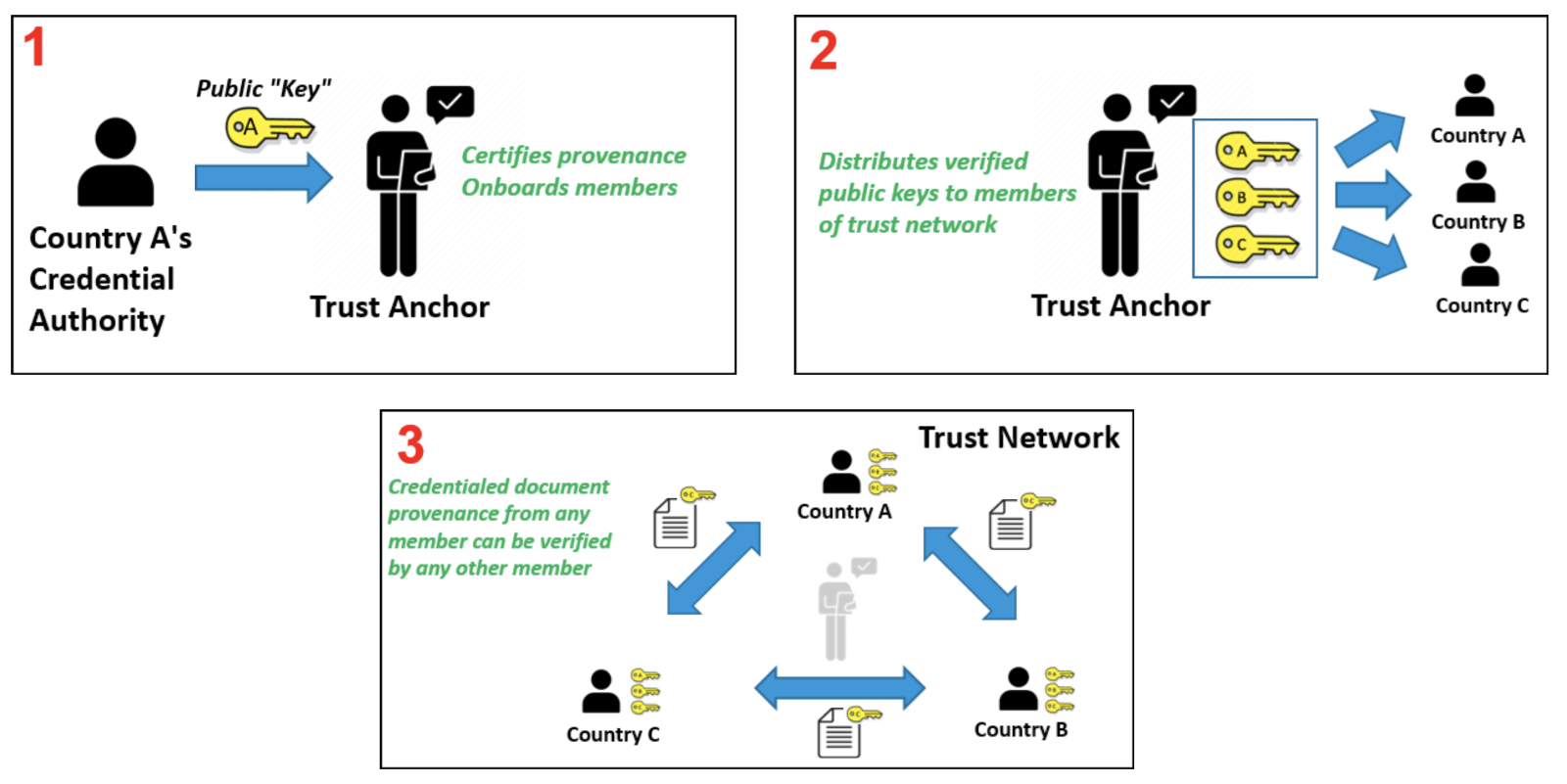
Global Digital Health Certification Network
Digital health solutions help bring health information to elderly at their homes
WHO’s Global Digital Health Certification Network is an open-source platform, built on robust & transparent standards that establishes the first building block of digital public health infrastructure for developing a wide range of digital products for strengthening pandemic preparedness and to deliver better health for all.
Background
One of the key tools used by many Member States in reopening economies during the COVID-19 pandemic has been digital COVID-19 test and vaccine certificates. As the directing and coordinating authority on international health work, at the onset of the pandemic, WHO engaged with all WHO Regions to define overall guidance for such certificates and published the Digital Documentation of COVID-19 Certificates: Vaccination status and Test results in 2021 and 2022, respectively.
Learning from the COVID-19 pandemic response, there is a recognition of an existing gap and continued need for a global mechanism that can support bilateral verification of the provenance of health documents for pandemic preparedness and continuity of care. The GDHCN can be used as an infrastructural building block to support additional use cases, which may include, for example, the digitisation of the International Certificate of Vaccination or Prophylaxis, verification of prescriptions across borders, the International Patient Summary, verification of vaccination certificates within and across borders, and certification of public health professionals (through WHO Academy). Expanding such digital solutions will be essential to deliver better health for people across the globe.
To meet this need, in line with the Global strategy on digital health priority actions, WHO has established the Global Digital Health Certification Network (GDHCN). The GDHCN is builds upon the experience of regional networks for COVID-19 Certificates and takes up the infrastructure and experiences with the digital European Union Digital COVID Certificate (EU DCC) system, which has seen adoption across all Member States of the EU as well as 51 non-EU countries and territories. The GDHCN has been designed to be interoperable with other existing regional networks (e.g., ICAO VSD-NC, DIVOC, LACPass, SMART Health Cards) specifications.
Technical information
The GDHCN is a trust network that is a digital reflection of the trust WHO already has with Member States. The trust network is operationalized through software infrastructure that enables Member States to bilaterally verify the authenticity of digital records and health certificates through an interoperable trust architecture, without WHO participating in any verification processes but acting as a “trust anchor”.

As the trust anchor, WHO is implementing an onboarding process to establish technical and governance procedures for digital trust between WHO and each Member State, and thus, between Member States participating in the trust network. WHO will not hold or otherwise have access to any individual data. Participating Member States voluntarily submit public keys into a directory managed by WHO, so they are shared in a trusted manner with other Member states. These public keys then can be used to verify that digitally signed health credentials (e.g. Immunization cards, health records) were issued by a recognized authority in the GDHCN.
Regional and global trust networks are widely used today for when the provenance of information must be certified and verified such as a passport or a website. The GDHCN is designed to leverage existing investments by jurisdictions that were made under the COVID-19 response and provide the digital health infrastructure needed for resiliency in future epidemic and pandemic responses and to deliver better health to all by enabling the use of digital personal health records for continuity of care.
Benefits of establishing a GDHCN
- Individuals obtain agency over their own health information
- Health providers can more easily verify health records to support continuity of care
- Governments can provide standards and mechanisms to issue and verify that records are linked to authorized institutions, within and between countries.
Publications

Digital documentation of COVID-19 certificates: test result: technical specifications and implementation...
This is a guidance document for countries and implementing partners on the technical requirements for developing digital information systems for issuing standards-based...

Digital documentation of COVID-19 certificates: vaccination status: technical specifications and implementation...
This is a guidance document for countries and implementing partners on the technical requirements for developing digital information systems for issuing...

Global strategy on digital health 2020-2025
Please access all available languages here
